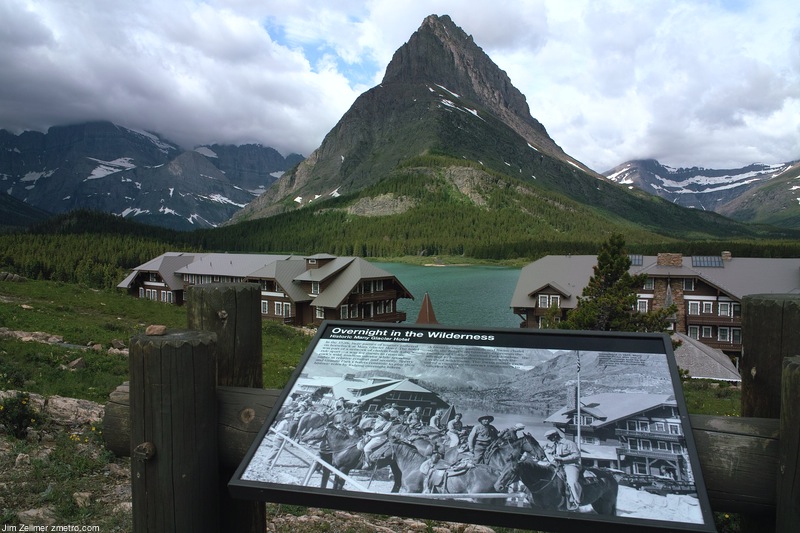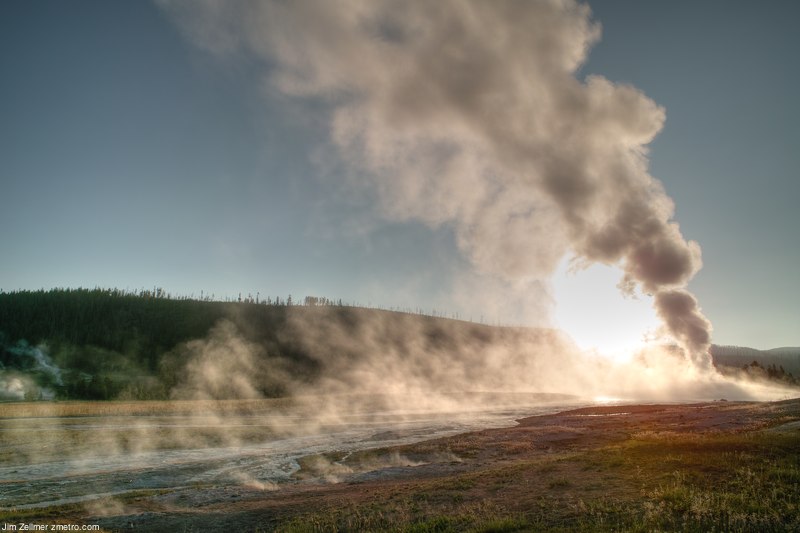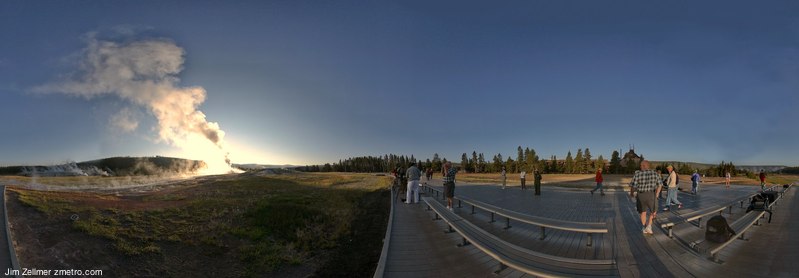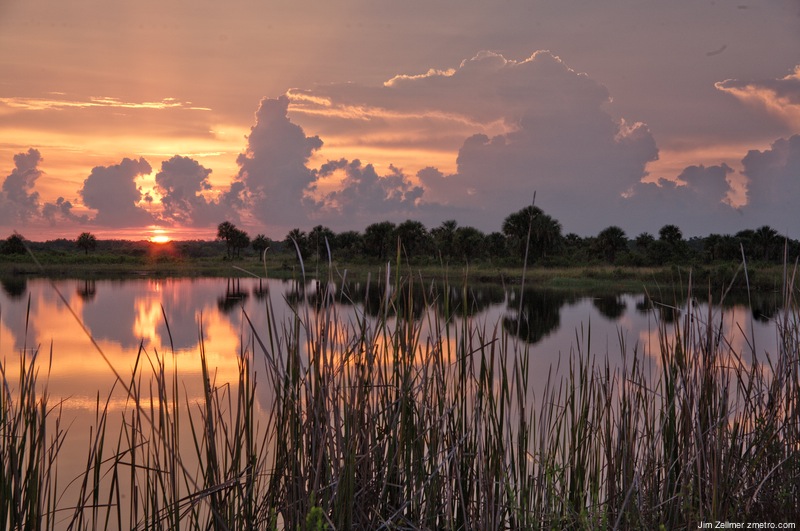
26.149775 -81.348610. Clusty search: Alligator Alley.
Many Glacier Hotel
Waterton Lakes National Park: VR View from the Prince of Wales Hotel

A rather spectacular setting, representing the classic road not taken. Links:
Yellowstone’s Old Faithful at Sunrise
Minimalist traveling a matter of mind-set and tactics
Packing light is as much about philosophy as tactics. It’s about adopting a minimalist ethos that a few, well-chosen possessions will serve you better than a steamer trunk full of impedimenta. Your stuff, after all, is supposed to help you see the world, not burden you.
In one sense, you have a choice to make: Is it more important to see or to be seen? If it’s the former, a carry-on filled with just the essentials will allow you to cover a lot of ground unencumbered; if it’s the latter, indulge yourself with multiple wardrobe options for every occasion and just go ahead and pay those extra luggage fees.
For those making the switch to packing light, a few random tips:
— As you’re packing, make two piles: one for items you absolutely, positively need, the other for stuff that would be nice to have. Put the first pile in your suitcase and the second back in your closet.
— That said, allow yourself a tiny luxury or two. For me, it’s a lightweight cotton kimono-style bathrobe, plus an iPod and speakers. Filled with my calendar and contacts, my iPod doubles as my PDA.
Why No Outrage?
Raise less corn and more hell,” Mary Elizabeth Lease harangued Kansas farmers during America’s Populist era, but no such voice cries out today. America’s 21st-century financial victims make no protest against the Federal Reserve’s policy of showering dollars on the people who would seem to need them least.
Long ago and far away, a brilliant man of letters floated an idea. To stop a financial panic cold, he proposed, a central bank should lend freely, though at a high rate of interest. Nonsense, countered a certain hard-headed commercial banker. Such a policy would only instigate more crises by egging on lenders and borrowers to take more risks. The commercial banker wrote clumsily, the man of letters fluently. It was no contest.
The doctrine of activist central banking owes much to its progenitor, the Victorian genius Walter Bagehot. But Bagehot might not recognize his own idea in practice today. Late in the spring of 2007, American banks paid an average of 4.35% on three-month certificates of deposit. Then came the mortgage mess, and the Fed’s crash program of interest-rate therapy. Today, a three-month CD yields just 2.65%, or little more than half the measured rate of inflation. It wasn’t the nation’s small savers who brought down Bear Stearns, or tried to fob off subprime mortgages as “triple-A.” Yet it’s the savers who took a pay cut — and the savers who, today, in the heat of a presidential election year, are holding their tongues.
Athabasca Glacier VR Scene: Jasper National Park Canadian Rockies
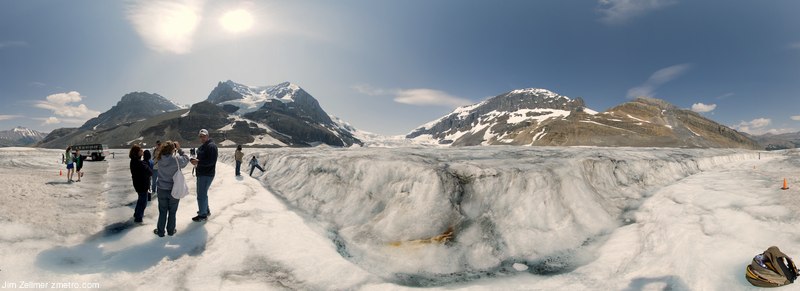
The journey to the glacier is an adventure, particularly the “Ice Explorer” ride.
Links:
Sunrise VR Scene with the BBC at Old Faithful
While capturing this sunrise scene at Old Faithful recently, I learned that the BBC is shooting a 3 part series on Yellowstone. Their videographers, equipped with some very nice equipment, spent the past two mornings waiting for the “perfect” sunrise behind Old Faithful. This scene, on their third day, was best, according to their National Park Service Ranger minder. The program will evidently air in the UK this fall and here sometime in 2009.
Location: 44.460174 -110.829563
The kind ranger also mentioned that she is often asked “where they put the animals at night?”
Full screen vr scene.
Biofuels Deathwatch Map
Biofuel plants have been put on hold faster than your phone company’s tech support line. With corn and soy prices hitting record high prices and an ethanol glut flooding the market, ethanol’s profit margin per gallon has dropped to a meager 25 cents from $2. That’s causing numerous ethanol and biodiesel plants to get put on hold or downright canceled. Hundreds of millions of gallons of production capacity and hundreds of millions of dollars in biofuel investments are now hanging in limbo, as investors hope prices will level out.
That’s not to say that ethanol is dead in the water. There’s a variety of positive reports coming out on the future of the industry — there’s reports that see a meaningful future for ethanol , as well reports saying ethanol could be deliver a better-than-expected energy return. Add in a healthy merger and acquisition market and biofuels will play a role in the future of weaning the U.S. off oil.
21 Great Technologies That Failed
Jeremy A. Kaplan and Sascha Segan:
The most innovative tech doesn’t always succeed. Here we present 10 great technologies each from Apple and Microsoft that were simply too far ahead of their time.
Mention technology that failed and people instantly think of Microsoft Bob, the IBM PCjr, and worse. But those weren’t necessarily great products—heck, Bob wasn’t a good idea at all. The ideas and innovations that succeed aren’t necessarily the best either; they just happened to be in the right place at the right time.
